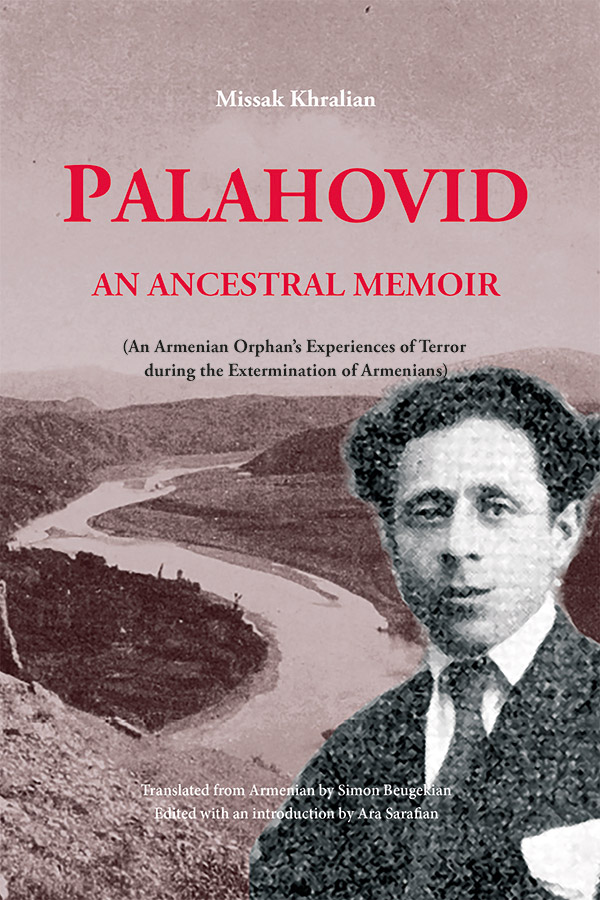
Palahovid: An Ancestral Memoir
translated from Armenian by Simon Beugekian; edited with an introduction by Ara Sarafian
London: Gomidas Institute, 2021xx + 160 pages, map, photos.
ISBN 978-1-909382-63-3, pb.,
UK£20.00 / US$25.00
To order please contact books@gomidas.org
Missak Khralian was a child survivor of the Armenian Genocide. He was a 14-year-old boy in 1915 when Ottoman authorities embarked on a genocidal campaign to erase the Armenian presence in the Ottoman Empire. Khralian’s own ancestral village of Til (in Palahovid or Palou) was one of 40 Armenian settlements targeted for destruction in this district. It was a small settlement of 25 Armenian households and 10 Kurdish and Turkish ones. The core of his memoir covers the years between 1914 and 1922. It is a powerful work of seminal importance.
Khralian's memoir is part of the Gomidas Institute Armenian Genocide Documentation project. It can be compared to other child-survivor accounts from this region, such as Hampartzoum Mardiros Chitjian's A Hair’s Breadth from Death (Gomidas Institute, 2021, 2nd ed.), Avedis Abrahamian's Avedis' Story: An Armenian Boy's Journey (Gomidas Institute, 2014), Souren Hanessian's Through the Depths (Gomidas Institute, 2017), as well as Papken Injarabian's Azo the Slave Boy and his Road to Freedom (Gomidas Institute, 2015) and Jean V. Gureghian's My Father's Destiny: The Golgotha of Armenia Minor (Gomidas Institute, 2015).
Introduction (vii)
Preface (5)
PALAHOVID
Part A: A Chronicle of the Homeland
A General Overview (7)
1760-1915 (11)
First Memories (20)
Persecution (25)
Conscription and Exile (32)
A Page from the Bloody Year of 1915 (61)
Part B: The Horrors Experienced during the Extermination of Armenians
"Yev Yeghev Souk” (73)
"Mayig… Chem Gna… Shad en…” (77)
"I Weep… But I Succeed…” (81)
My First Heartbeat… (90)
Forced to Record Death Sentences (100)
An Invisible Hand at Work (106)
A Visitor in the Night (108)
The Haven of Mercy (116)
[Part C] A Historical Overview
A Bit of History (139)
Melkon Gurjian (147)
History and Traditions
Short Remarks on Palou (149)
Islamized Begs (150)
Some Examples of Traditions (151)
The Monastery (154)
To the New Generation (159)